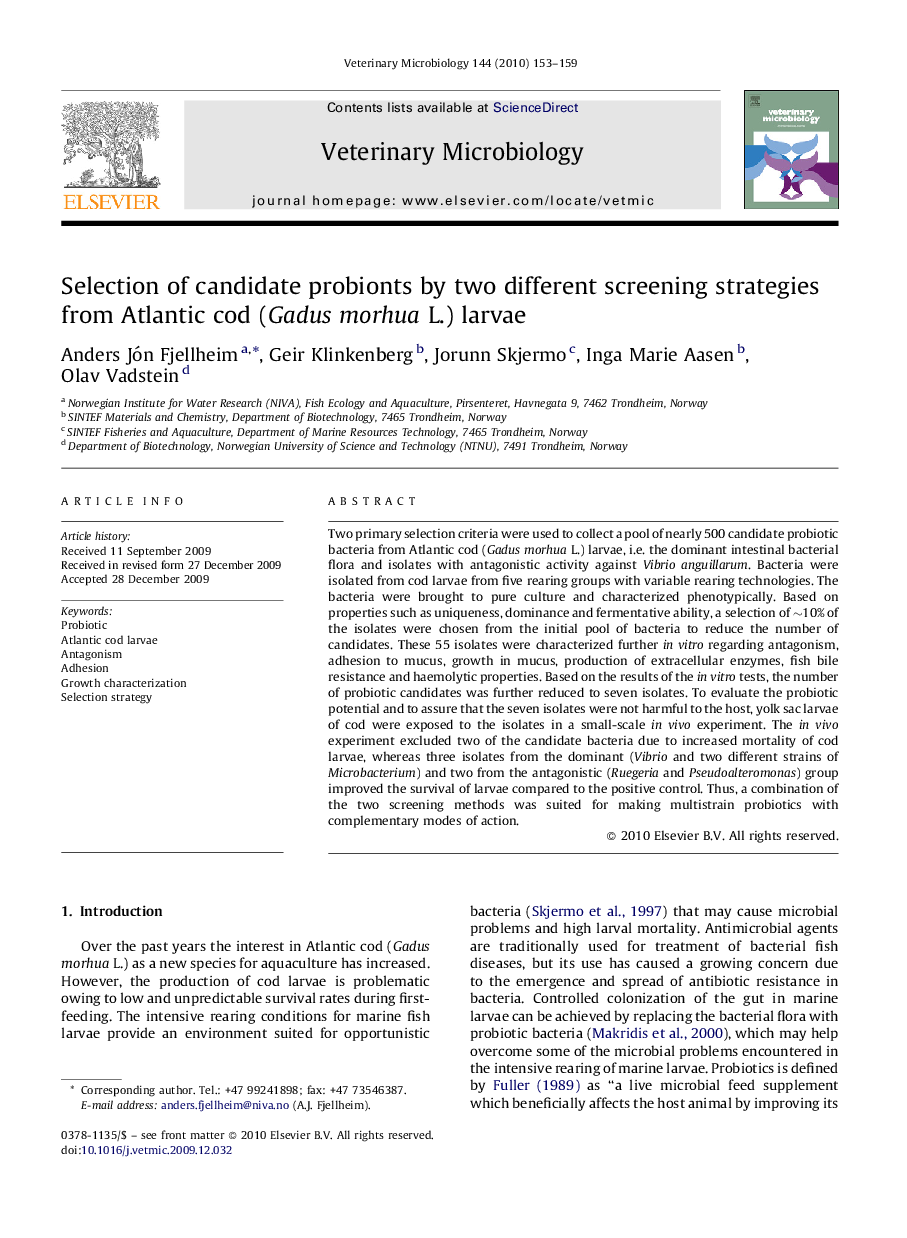| Article ID | Journal | Published Year | Pages | File Type |
|---|---|---|---|---|
| 2467853 | Veterinary Microbiology | 2010 | 7 Pages |
Two primary selection criteria were used to collect a pool of nearly 500 candidate probiotic bacteria from Atlantic cod (Gadus morhua L.) larvae, i.e. the dominant intestinal bacterial flora and isolates with antagonistic activity against Vibrio anguillarum. Bacteria were isolated from cod larvae from five rearing groups with variable rearing technologies. The bacteria were brought to pure culture and characterized phenotypically. Based on properties such as uniqueness, dominance and fermentative ability, a selection of ∼10% of the isolates were chosen from the initial pool of bacteria to reduce the number of candidates. These 55 isolates were characterized further in vitro regarding antagonism, adhesion to mucus, growth in mucus, production of extracellular enzymes, fish bile resistance and haemolytic properties. Based on the results of the in vitro tests, the number of probiotic candidates was further reduced to seven isolates. To evaluate the probiotic potential and to assure that the seven isolates were not harmful to the host, yolk sac larvae of cod were exposed to the isolates in a small-scale in vivo experiment. The in vivo experiment excluded two of the candidate bacteria due to increased mortality of cod larvae, whereas three isolates from the dominant (Vibrio and two different strains of Microbacterium) and two from the antagonistic (Ruegeria and Pseudoalteromonas) group improved the survival of larvae compared to the positive control. Thus, a combination of the two screening methods was suited for making multistrain probiotics with complementary modes of action.
